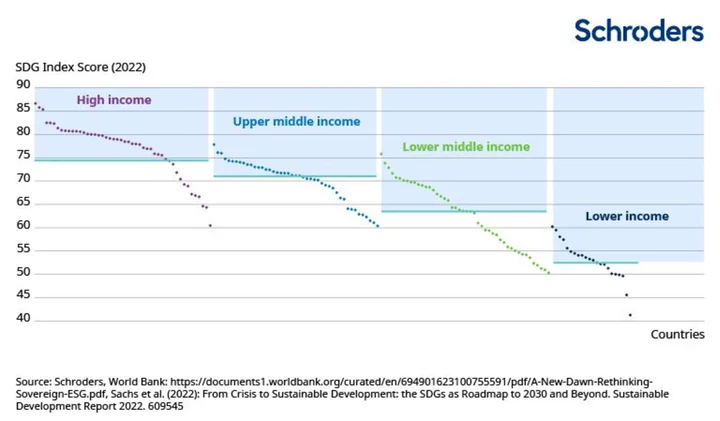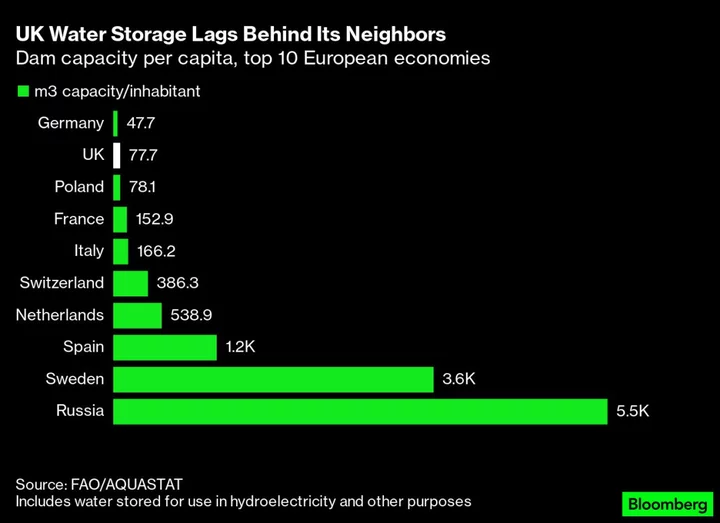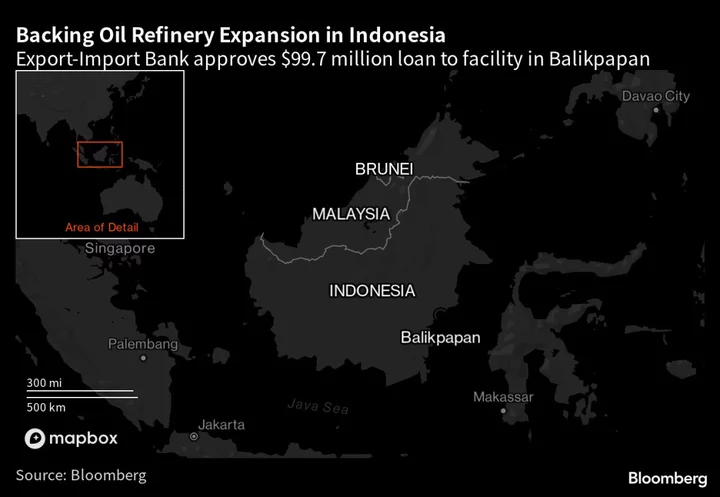Schroders Plc said it has a way to score sovereign debt that corrects for the rich-world biases inherent in ESG investing.
Emerging economies start off at a significant disadvantage, the asset manager says, because they tend to rely on coal or other fossil fuels, they’re disproportionately vulnerable to climate change, and they lack the resources to address either. As a result, they look like worse ESG investments relative to wealthier countries, further limiting their access to capital, said Marcus Jennings, strategist at Schroders in London.
To create a more level playing field, Schroders tried to compare countries with similarly situated peers. It puts the countries in four buckets based on their income, Jennings explained. It then scores them based on progress toward the United Nations’ 17 Sustainable Development Goals, with equal weight assigned to each.
In that framework, countries that rank above the median total score within their income bracket are eligible for investment. They must also have a credible, documented net zero policy and be considered “free” or “partly free” by Freedom House, a US-based pro-democracy group.
“If you look at ESG scores through different providers, there is that bias associated with scoring, and when I say bias, I’m talking about the notion of high-income countries,” he said. These scores, adopted by much of the asset management industry, “risk starving emerging markets of capital,” he added.
Schroders, which oversees about $893 billion, plans to launch a sovereign debt fund this month based on its new scoring system. It also has begun to apply the same framework to an existing sustainable bond fund, Jennings said.
Investment banks, including JPMorgan Chase & Co. and Morgan Stanley, have been grappling with the ESG imperatives and obstacles posed by emerging economies. There is still “a strong bias to favor richer nations when creating ESG sovereign bond type of strategies,” said Ulf Erlandsson, founder of Stockholm-based research provider Anthropocene Fixed Income Institute, who was previously a fund manager.
JPMorgan is also assessing the sovereign debt of emerging markets and their developed peers separately when providing ESG scores to remove the income bias, it said in a report in November. Within the EM bucket, where countries tend to have fewer resources and more climate change vulnerability, it amps up the weighting of environmental scores thus rewarding countries that are taking bigger strides.
Schroders’ approach means fund managers will be able to allocate a larger portion of their assets to countries outside the high-income bracket. Brazil and Peru score well in its framework, and Indonesia could be an investment opportunity depending on its progress in attaining net zero goals, Jennings said.
The final decision on how to allocate money across different sovereigns still hinges on which government bonds offer the best prospects for a good return, but is no longer limited to a small bucket of rich countries, he said.
“Income adjustment levels the playing field a little bit,” Jennings said.
(Adds details of JPMorgan Asset report in eighth paragraph.)









